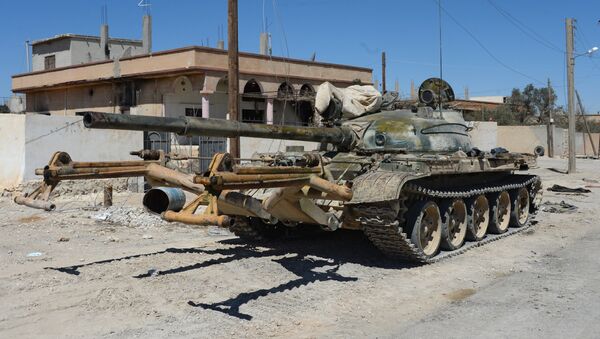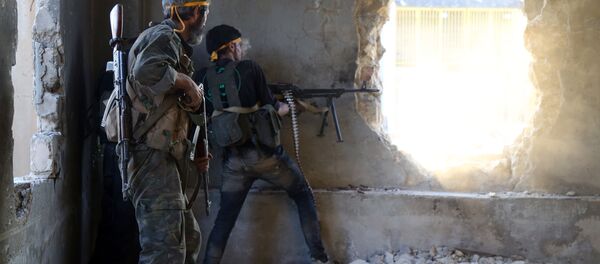Syria's decentralization could be a way out of the ongoing crisis, but it is by no means a panacea, according to Vitaly Naumkin, President of the Institute of Oriental Studies at the Russian Academy of Sciences (RAS).
"We, the experts, may say that decentralization is, perhaps, necessary. I really think so. But it does not mean that the Syrians share a similar view. There are forces, first of all the Kurds, which have reached a high level of autonomy and rushed into declaring a federation," Naumkin said Monday during the presentation of the Valdai Discussion Club's report entitled "The Middle East in a Time of Troubles: Traumas of the Past and Challenges of the Future"
"The Middle East today epitomizes major global trends: international processes becoming more ungovernable, the resurgence of power as a factor in international relations, the greater role played by contingency, the world's periphery and semi-periphery gaining in strength amid a crisis in the concept of the nation state and national identity," the report read.
The authors of the report highlighted that "Russia is currently viewed in the region as being the most consistent and effective force fighting Daesh" and expressed their hope that the US and Russia would team up to solve the crisis.
The issue of Syria's decentralization has been repeatedly discussed by Western think tanks and senior government officials.
"I don't know whether or not Syria and Iraq can be put back together again. There's been so much bloodletting, so much destruction. I question whether we will see, in my lifetime, the creation of a central government in both of those countries that's going to have the ability to govern fairly," CIA Director John Brennan said in early September, as quoted by CNN.
"European actors should recognize the reality on the ground and shift their focus away from achieving a centralized power-sharing agreement and towards negotiations based on a devolved politics. A decentralized model will be difficult to implement, but ironically may offer one of the few means of holding the country together," the report argued.
However, there are numerous voices throwing such a prospective in question.
In his article for New Eastern Outlook Stanislav Ivanov, a leading research fellow at IMEMO and the Institute of Oriental Studies at the Russian Academy of Sciences (RAS), warned that the partitioning of Syria may result in the Somaliazation of the country, which "will be plunged in the state of perpetual violence and chaos for years."
For his part Turkish journalist Serkan Demirtas signaled in his op-ed for Hurriyet Daily News that Ankara views Syria's federalization as a threat to its national security, fearing that the Kurds would create an independent entity in northern Syria along Turkey's southern borders.
"A hundred years have passed since the original sin of partitioning the Middle East was imposed from outside the region, and there's no relief in sight. It seems the solution to bad partition is another partition. If partition doesn't work, more partition will," the journalist emphasized.
He argued that those analysts who believe that the partitioning of Yugoslavia could be regarded as a "model" for Syria are profoundly wrong.
"Treating Syria or Iraq, Libya, Yemen and other troubled Arab nations like the former Yugoslavia (which was divided into seven states) will produce dozens more fragile conflicting mini-states," he stressed.
"That's why dividing Syria along ethnic and religious lines will create more — not less — conflict and violence," Bishara warned.
Moscow has repeatedly signaled that Syria's territorial integrity is a critically important issue for Russia, stressing that only the Syrians could decide whether or not to change the administrative structure of their state.




